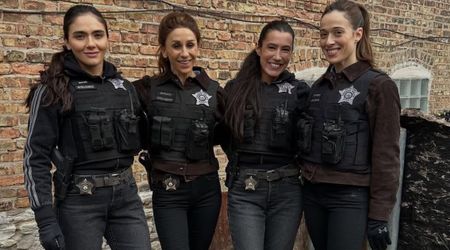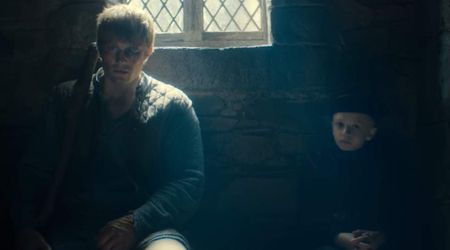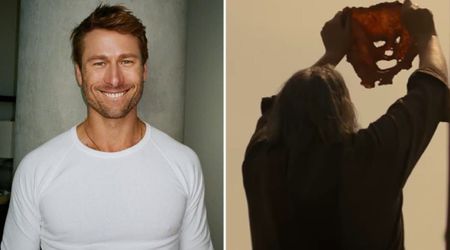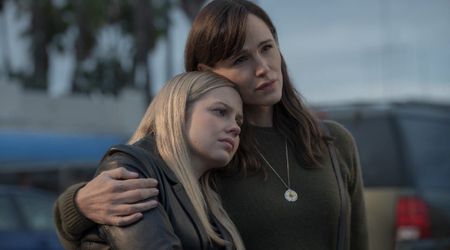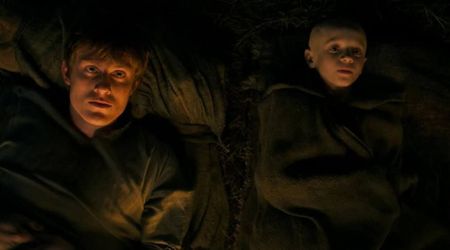Making A Murderer: Brendan Dassey's case will not be heard by the Supreme Court

The Supreme Court of the United States, on June 25, refused to weigh in on the case of the teen (now a man), Brendan Dassey, whose story was documented on the Netflix series, "Making a Murderer." He was accused and convicted of raping and murdering, a photographer, along with his uncle. The judges did not give any explanation for this decision, which now leaves him with a ruling against him from a lower court.
Dassey was 16-years-old, at the time, of his confession. He told a couple of Wisconsin detectives about his role in the rape and murder of the photographer, Teresa Halbach, before disposing her body on a bonfire. Dassey's uncle, Steven Avery, was the prime accused in the case.
Dassey's attorneys have maintained since the beginning about him being a borderline intellectually disabled, who was pressured by the detectives into confessing to the crime. They appealed to have his confession discarded and requested for that a fresh trial is conducted for his alleged involvement in the crime. In response to these allegations, the Wisconsin-based officials, pleaded with the Supreme Court to not take up the case.
They requested that the justices in power shouldn't second-guess Wisconsin courts' decision while maintaining the claim that the confession was voluntary and the accused wasn't coerced, at any point.
The prosecutors have said that Dassey's mother gave them (the detectives) permission to interview him and that Dassey himself had agreed to be interviewed by them. They also claimed that proper techniques were adhered to while interviewing Dassey, such as using a sympathetic tone and even encouraging the boy to be honest. His attorneys will continue to try and get him (now-28-year-old) a new trial. But, they'll have to get a judge on board, if and when, new evidence emerges in the case that will require another trial.
SCOTUS' decision came after Netflix announced its plan to make a second season of the hit docuseries that premiered in 2015. Viewers, who've already watched the first season, saw Dassey's uncle, Steven Avery, spending 18 years in prison for a rape before he was exonerated after DNA results came back negative. After his release, Avery filed a multi-million dollar civil suit over his conviction but then, in 2005, he was arrested again and then convicted for Teresa Halbach's murder. Avery still maintains that he was framed and had nothing to do with the crime.
Dassey's trial was held separately, where a video footage of him speaking to the investogatoes and confessing to being a part of the photographer's rape and murder, was played out as a crucial element. The authorities did not have any physical evidence that tied the then-teen to the crimes and he had testified that his confession was "made up". The jury, however, convicted him of the crime. He is now eligible for parole only in 2048.
At the time, a Wisconsin court, had ruled that Dassey's confession was voluntary but then a federal magistrate judge and a three-judge appeals court panel disagreed with the decision and said he should either be retried or released from jail. In late 2017, however, a full appeals court ruled 4 to 3 that the previous determination by the state court that the confession was voluntary was logical and that there was no need for release or retrial. The decision taken by the Supreme Court about it not taking up the case has left Dassey in the same position.
Dassey's interrogation, confession, trial, and aftermath
Born on March 22, 1980, in Kaukauna, Wisconsin, Teresa Halbach was a photographer who was reported missing by her parents on November 3, 2005. The 25-year-old lived next door to her parents in Calumet County and was last seen on October 31 visiting the Avery Salvage Yard in Manitowoc County.
Calumet County Sheriff Jerry Pagel found the burned remains of Halbach on November 10, 2005, after her Toyota RAV4 was found on the property. The authorities were also able to recover her cell phone, the car's license plates and the car key. Prime suspect Steven Avery's blood was found inside the vehicle and he was subsequently charged with the kidnapping and murder of Halbach as well as mutilation of a corpse, and illegal possession of a firearm.
When the investigation was underway, Dassey, who was Avery's alibi for not committing any of the crimes, was put under a series of interrogations without the presence of a lawyer or parent, even though Dassey and his mother had both agreed to them. The detectives made many false promises to the boy during these sessions in what is being called "approved techniques. While the boy was being interrogated, he confessed at length to being his uncle's co-conspirator in the rape and murder of Halbach and later, the mutilation of her body.
A US magistrate judge described the confession at a hearing as "clearly involuntary in a constitutional sense" but this opinion was overturned by a superior court. The US Supreme Court has now said that it will uphold the decision of the superior court and not hear the case.
Dassey was arrested on March 1, 2006, and was charged with being a co-conspirator to a first-degree homicide, sexual assault, and mutilation of a corpse. Ken Kratz, the special prosecutor for the case, held a massive press conference about both the cases (Dassey's and Avery's) to discuss the details and also to read word to word the false confession given by Dassey.
The news made national headlines. Later, Dassey decided to recant his confession in a letter he had sent to the trial judge. In the letter, he said that he got most of the ideas for the alleged crime from a book.
The teen was interrogated on four different occasions that took place over a 48-hour period. This included the three times he was interrogated over 24 hours, without any legal representative, parent, or other adults aside from the detectives present in the toom with him.
Dassey was first interrogated at the family cabin in Crivitz on November 6. The detectives used the "Reid" technique on Dassey which was developed to permit and encourage law enforcement officers to use tactics that pressure suspects to confess. The boy had already been clinically evaluated to be highly suggestible and this makes the suspect more compliant. In many cases, such as this one, it leads to improper interrogation outcomes such as false confessions.
Len Kachinsky, Dassey's first appointed lawyer, was removed from the case on August 26, 2006, because of his decision to not show up with his young client during an interrogation that took place on May 31. Two public defenders took Kachinsky's place. The trial began on April 16, 2007, and had a jury from Dane County, Wisconsin. It lasted for nine days and the verdict was revealed on April 25, 2007.
After deliberating for four hours, the jury found Dassey guilty of first-degree intentional homicide, rape and mutilation of a corpse. Even though he was only 17-years-old at the time, he was tried and convicted as an adult and the intellectual limitations he had were ruled as irrelevant.
Dassey was sentenced to life in prison with eligibility of parole only in 2048. He is currently incarcerated at the Columbia Correctional Institution in Portage, Wisconsin.

